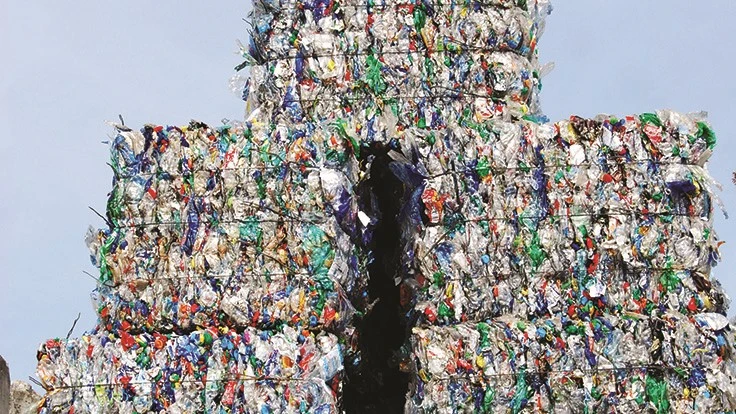
The Silver Spring, Maryland-based Solid Waste Association of North America (SWANA) has announced that it is committing to a renewed focus on improving recycling practices and reducing generation of single-use plastics.
In support of this renewed focus on ending plastic pollution, SWANA emphasized to all members and the public that “reduce and reuse” comes before “recycle” on the waste hierarchy for a reason, and noted that primary efforts should center on reducing the amount of waste generated and finding ways to give products a longer life cycle in order to reduce environmental impacts.
“We should think differently before we purchase products made with plastic, and in the spirit of reduction, ask ourselves if we really need them,” Tracie Onstad Bills, Northern California director of sustainable materials management at Long Beach, California-based SCS Engineers, says. “Consider buying material that can be reused, or at a minimum, easily recycled—these are principles we can live by every day.”
To successfully process plastic waste, the public must be educated on what goes into the blue bin to make smarter recycling choices: Plastic bags cause jams to processing equipment, batteries cause serious fires and food waste can contaminate an entire bale.
Contamination has been a major concern in the wake of China’s waste import restrictions. Recycling exports have declined and SWANA acknowledges the need for increased governmental support for North American recycling programs, an industry that provides jobs, tax revenue and preserves landfill space. SWANA recently sent a letter to key congressional leaders in the U.S. urging that recycling be included in any future Infrastructure bill.
“Our communities need support in developing renewed and standardized messaging on recycling smarter in order to increase the quality and market opportunities for collected plastic resources,” Jeffrey Murray, international president at SWANA and senior project manager at Omaha, Nebraska-based HDR, says. “Our industry needs investment in infrastructure to expand our domestic processing capabilities and to incentivize the development of new end products from recycled plastics.”
SWANA’s new Recycling Task Force is working to address how North America can successfully and sustainably process the amount of plastic that is in our waste stream by initiating public education efforts, actively calling for increased funding for recycling infrastructure and exploring new opportunities to increase demand for recycled content.
“Through the collective efforts of SWANA’s Recycling Task Force, cooperation with federal and state officials and renewed public awareness brought on by Earth Day, I am hopeful that we can make headway in finding creative solutions to reducing and processing our plastic waste,” David Biderman, executive director and CEO of SWANA, says.
Latest from Waste Today
- Brightmark, Lewis Salvage partnership processes 1M pounds of medical plastics
- Eco Waste Solutions will deliver waste disposal system to US Air Force
- Teaching kids the value of recycling
- ELV Select Equipment, Reworld aid NYPD in secure firearm disposal
- GreenWaste appoints CEO
- CHaRM facility opens in Fairhope, Alabama
- Liebherr to exhibit at upcoming IRPT event
- Investment firm acquires majority stake in CP Group





